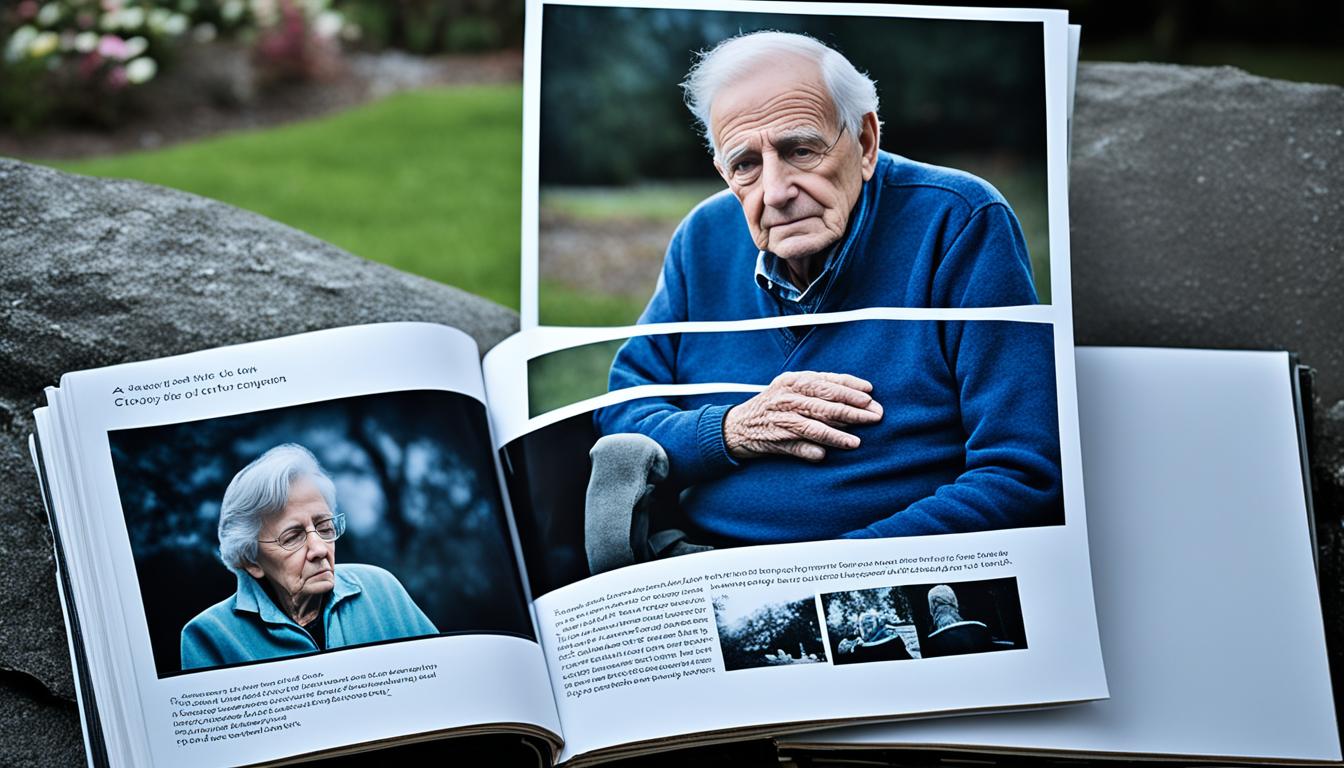When contemplating the formation of a Dementia Palliative Care Team, it is essential to recognize that research indicates that dementia patients who receive palliative care experience a meaningful enhancement in their quality of life.
This team's composition is vital, with unique roles for each member in providing holistic care. From medical management to emotional support, these essential team members collaborate to address every aspect of a patient's well-being.
Understanding the crucial roles within this team can enhance the care journey for both patients and their families.
Key Takeaways
- Creating a strong care team is crucial for comprehensive dementia palliative support.
- Roles of doctors, nurses, social workers, and chaplains are essential for holistic care.
- Tailored communication and regular team meetings enhance collaboration and care quality.
- Ongoing training, support, and role clarity prevent burnout and ensure quality care delivery.
Importance of Team Building
Why is team building so crucial in dementia palliative care? When caring for individuals with advanced dementia, creating a strong care team is essential for providing comprehensive support. This team, consisting of family members, health care professionals, and possibly home care providers, plays a vital role in enhancing the quality of life for both the person with dementia and their caregivers. By establishing a network of helpers, the burden is shared, reducing stress and feelings of being overwhelmed.
In the early stages of dementia, assistance from a well-coordinated care team can significantly impact the individual's engagement and overall well-being. Planning for support in advance not only boosts confidence but also ensures a more proactive approach to managing the challenges that may arise. This proactive strategy is far more effective than scrambling for help during emergencies. Ultimately, team building in dementia palliative care sets the foundation for a more active and fulfilling life for everyone involved in the caregiving journey.
Key Team Members and Roles

When establishing a dementia palliative care team, it's crucial to identify the key members and their respective roles to ensure comprehensive support for both the individual with Alzheimer's disease and their caregivers. Doctors play a crucial role in overseeing medical care, symptom management, and addressing side effects that may arise during the palliative care journey.
Nurses provide hands-on care, administer medications, and closely monitor the patient's health status, ensuring effective pain management and quality of life.
Social workers offer invaluable emotional support, assist with care planning, and facilitate access to palliative care resources for patients and their families.
Additionally, chaplains provide spiritual care and support, addressing the emotional and spiritual needs that can arise as individuals navigate through the challenges of dementia and its impact on life expectancy.
Together, these essential team members work collaboratively to deliver holistic care tailored to the unique needs of each individual and their caregivers.
Team Collaboration and Communication
In fostering effective team collaboration and communication within a dementia palliative care setting, prioritizing clear and tailored strategies to accommodate the cognitive and communication challenges of patients is paramount. When working in palliative medicine for dementia care, it's essential to implement communication strategies that consider the specific needs of each patient.
To enhance team collaboration and communication, consider the following:
- Tailored Communication: Adjust your communication style to match the patient's cognitive abilities and preferences.
- Regular Team Meetings: Schedule frequent meetings to discuss the patient's care plan, address any concerns, and ensure everyone is updated.
- Respectful Communication: Foster an environment of open and respectful communication among team members to promote a supportive atmosphere.
- Holistic care Approach: Emphasize collaboration between team members to provide comprehensive care and support for both the patient and their family.
Training and Support for Team Members

To equip your dementia palliative care team members with the essential skills and support they need, specialized training and ongoing education are imperative. Palliative care training specific to dementia care is crucial for understanding the unique needs of patients with cognitive decline. Continuous skill development ensures that team members stay abreast of best practices and can provide optimal care. Moreover, offering emotional support is vital to help team members navigate the emotional challenges they may face in their roles. By providing regular debriefings, access to resources, and self-care opportunities, you can help your team members maintain their well-being and prevent burnout. Role clarity and effective communication channels are also essential for ensuring seamless collaboration within the team. Below is a table summarizing key aspects of training and support for your dementia palliative care team:
| Training and Support | Description |
|---|---|
| Palliative Care Training | Specialized education in dementia care |
| Ongoing Education | Continuous skill development for best practices |
| Emotional Support | Regular debriefings and resources for challenges |
| Role Clarity | Defined roles and communication channels |
Ensuring Quality Care Delivery
Equipping your dementia palliative care team with a multidisciplinary approach is essential to ensure quality care delivery for patients with cognitive decline. To achieve this, consider the following key elements:
- Multidisciplinary Team: Ensure your team consists of doctors, nurses, social workers, and chaplains working together to address the various needs of dementia patients effectively.
- Symptom Management: Focus on managing symptoms through a collaborative approach, ensuring that all aspects of the patient's well-being are considered.
- Emotional Support: Provide emotional support not only to the patients but also to their families and caregivers, recognizing the emotional toll that dementia can take on everyone involved.
- Coordinated Care Delivery: Coordinate efforts among team members to provide comprehensive care that meets the physical, emotional, and spiritual needs of patients, ultimately enhancing their quality of life.
Frequently Asked Questions
What Does a Palliative Care Team Consist Of?
A palliative care team typically includes doctors, nurses, social workers, and chaplains. These dedicated professionals work together to manage symptoms, improve well-being, and provide emotional support for patients. Each team member's role is crucial in creating personalized care plans for patients and their families.
What Should Be Considered in a Palliative Care Plan for People With Dementia?
In a palliative care plan for those with dementia, it's crucial to focus on enhancing quality of life and managing symptoms effectively. Tailored care should address the unique needs of individuals with dementia, considering their cognitive and physical limitations.
Symptom management, emotional support, and communication strategies play a vital role. Advance care planning is key to respecting individual preferences. Regular assessments and adjustments are essential to meet evolving needs in dementia palliative care.
What Is the Role of Palliative Care in Dementia Patients?
In dementia patients, palliative care plays a crucial role in enhancing quality of life, managing symptoms, and supporting both patients and families emotionally, spiritually, and physically. It focuses on reducing caregiver burden and promoting overall well-being.
Transitioning from palliative care to end-of-life care involves challenges in planning and communication to ensure patient comfort and safety. A multidisciplinary palliative care team works together to provide individualized care plans and support.
What Is the Role of Multidisciplinary Team in Dementia Care?
In dementia care, a multidisciplinary team is essential for providing comprehensive support. Doctors, nurses, social workers, and chaplains work together to manage symptoms, offer emotional support, and enhance the overall well-being of patients.
This collaborative approach ensures that the complex needs of individuals with dementia and their families are met effectively. By combining diverse expertise, the team can deliver holistic care that improves the quality of life for those affected by dementia.
Conclusion
In conclusion, building a dementia palliative care team is essential for providing comprehensive and specialized care for individuals with dementia.
By bringing together doctors, nurses, social workers, and chaplains, each playing a unique role in managing symptoms and offering support, patients can receive holistic care that improves their quality of life.
For example, by collaborating closely, the team can ensure a patient's comfort and well-being, like in the case of Sarah whose symptoms were effectively managed through coordinated care.









